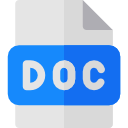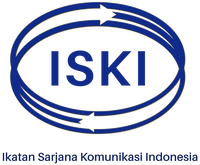Indeks Literasi Digital Generasi Milenial di Kabupaten Bandung
DOI:
https://doi.org/10.31315/jik.v18i1.3075Keywords:
Indeks, Literasi Digital, Generasi Milenial, BandungAbstract
Beragam persoalan seperti informasi hoaks, pelanggaran privasi, cyberbullying, konten kekerasan dan pornografi, dan adiksi media digital dianggap sebagai persoalan masyarakat digital terkini. Selain kesenjangan terjadi, berbagai kasus penyalahgunaan Internet juga marak, mulai dari Internet fraud, adiksi, pelanggaran privasi, bias realitas hingga paling mutakhir adalah meluasnya hoaks atau informasi palsu. Penelitian ini bertujuan untuk mengetahui tingkat literasi digital generasi milenial di Kabupaten Bandung. Metode penelitian yang digunakan adalah kuantitatif dengan pendekatan survei. Populasi dan sampel yang diambil adalah generasi milenial baru yaitu kelompok remaja atau kaum muda usia Sekolah Menengah Atas (SMA) di kabupaten Bandung. Penelitian ini berusaha untuk memetakan sampai dimana tingkat literasi digital remaja di kabupaten Bandung. Hasil penelitian menunjukkan bahwa tingkat literasi digital generasi milenial di kabupaten Bandung berada pada level intermediate. Kontribusi penelitian ini berupa rekomendasi kebijakan baru kepada pemerintah Kabupaten Bandung agar melakukan pemetaan awal terkait tingkat literasi digital.
References
A’yuni, Q. Q. (2015). Literasi Digital Remaja Di Kota Surabaya. Jurnal Fakultas Ilmu Sosial Dan Ilmu Politik Universitas Airlangga Surabaya, 4(2), 1–15. http://journal.unair.ac.id/literasi-digital-remaja-di-kota-surabaya-article-9195-media-136-category-8.html
Alfyonita, D., Nasionalita, K., Sos, S., Prodi, S., Komunikasi, I., Komunikasi, F., & Telkom, U. (2019). KONSTRUKSI IDENTITAS GENERASI MILLENNIAL DI KOTA BANDUNG DALAM MEDIA SOSIAL INSTAGRAM IDENTITY CONSTRUCTION OF MILLENNIAL GENERATION IN BANDUNG ON INSTAGRAM. In Openlibrary Telkom University (Issue Communication Science). https://openlibrary.telkomuniversity.ac.id/pustaka/147559/konstruksi-identitas-generasi-millennial-di-kota-bandung-dalam-media-sosial-instagram.html
Barton, D., & Lee, C. (2010). Literacy studies. In The SAGE Handbook of Sociolinguistics. https://doi.org/10.4135/9781446200957.n39
Bawden, D. (2017). Information and digital literacies : a review of concepts. August. https://doi.org/10.1108/EUM0000000007083
Bungin, B. (2011). Penelitian Kualitatif: Komunikasi, Ekonomi, Kebijakan Publik, Dan Ilmu Sosial Lainnya. In Kencana. https://doi.org/10.1002/jcc.21776
Hague, C., & Payton, S. (2010). Digital literacy across the curriculum Key to themes: A Futurelab handbook. www.futurelab.org.uk
Home, N., & Strauss, W. (2018). Millenials Rising : The Next Generation. Small Business and the City. https://doi.org/10.3138/9781442696501-014
Jones, R. H., & Hafner, C. A. (2012). Understanding digital literacies: A practical introduction. In Understanding Digital Literacies: A Practical Introduction. https://doi.org/10.4324/9780203095317
Juditha, C. (2013). Literasi Media pada Anak di Daerah Perbatasan Indonesia dan Timor Leste. JURNAL IPTEKKOM : Jurnal Ilmu Pengetahuan & Teknologi Informasi. https://doi.org/10.33164/iptekkom.15.1.2013.47-62
Lancaster, L. C., & Stillman, D. (2011). The “M Factor - How the Millennial Generation is Rocking the Workpkace.” NHRD Network Journal. https://doi.org/10.1177/0974173920110428
Lankshear, C., & Knobel, M. (2006). Digital literacy and digital literacies. Nordic Journal of Digital Literacy, 1(April 2016), 12–24. https://doi.org/10.1108/EL-05-2015-0076
Livingstone, S. (2008). Taking risky opportunities in youthful content creation: Teenagers’ use of social networking sites for intimacy, privacy and self-expression. New Media and Society. https://doi.org/10.1177/1461444808089415
Lyons, S. (2004). An exploration of generational values in life and at work. In ProQuest Dissertations and Theses.
Martin, C. A., & Tulgan, B. (2012). Managing the Generation MixTM - From Collision to Collaboration. Proceedings of the Water Environment Federation. https://doi.org/10.2175/193864703784755210
Novianti, Fatonah, Siti, D. (2016). Model Literasi Media di Kalangan Ibu-ibu Rumah Tangga di Yogyakarta. Jurnal Ilmu Komunikasi, 14, 101–113.
Paul, C. M. (2005). Encyclopedia of information science and technology. Choice Reviews Online, 43(01), 43-0002-43–0002. https://doi.org/10.5860/choice.43-0002
Potter, W. J. (2013). Review of literature on media literacy. Sociology Compass. https://doi.org/10.1111/soc4.12041
Purbo, O. W. (2018). 5. Narrowing the digital divide. In Digital Indonesia. https://doi.org/10.1355/9789814786003-011
Rogers, E. M. (2001). The digital Divide. Convergence. https://doi.org/10.1177/135485650100700406
Setiawan, W. (2017). Era Digital dan Tantangannya. In Seminar Pendidikan Nasional 2017 (pp. 1–9). Universitas Pendidikan Indonesia.
Silvana, H., & Darmawan, C. (2018). Pendidikan Literasi Digital Di Kalangan Usia Muda Di Kota Bandung. Pedagogia, 16(2), 146. https://doi.org/10.17509/pdgia.v16i2.11327
Sugiyono. (2018). Metode Penelitian Kuantitatif,Kualitatif dan R&D. In Ke-26.
Wisnu Martha Adiputra. (2008). Literasi Media dan Interpretasi atas Bencana.pdf. Jurnal Ilmu Sosial Dan Ilmu Politik.
Yanuar Surya Putra. (2016). Theoritical Review: Teori Perbedaan Generasi. Among Makarti.
Downloads
Published
Issue
Section
License
Authors who publish articles in this journal agree to the following terms:
- Copyright remains with the author and gives rights to the Jurnal Ilmu Komunikasi as the priority to publish the article with an Creative Commons Atribusi 4.0 Internasional License, which allows the article to be shared with acknowledgment of the author of the article and this journal as the place of publication.
- Authors can distribute the publication of their articles on a non-exclusive basis (for example: on university repositories or books) with notification or acknowledgment of publication in the journal Option
- Authors are allowed to post their work online (for example: on personal websites or in university repositories) before and after the submission process (see The Effect of Open Access)
Jurnal Ilmu Komunikasi is licensed under a Creative Commons Atribusi 4.0 Internasional License.









